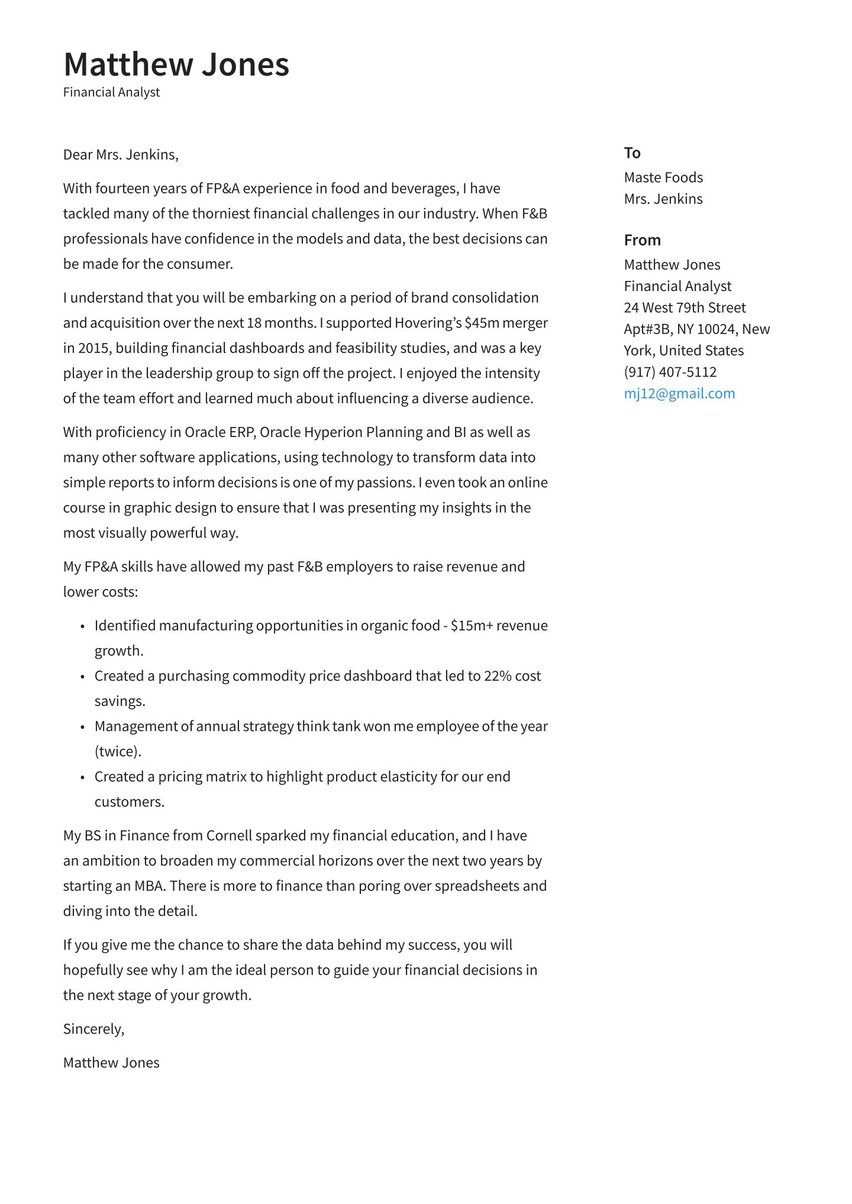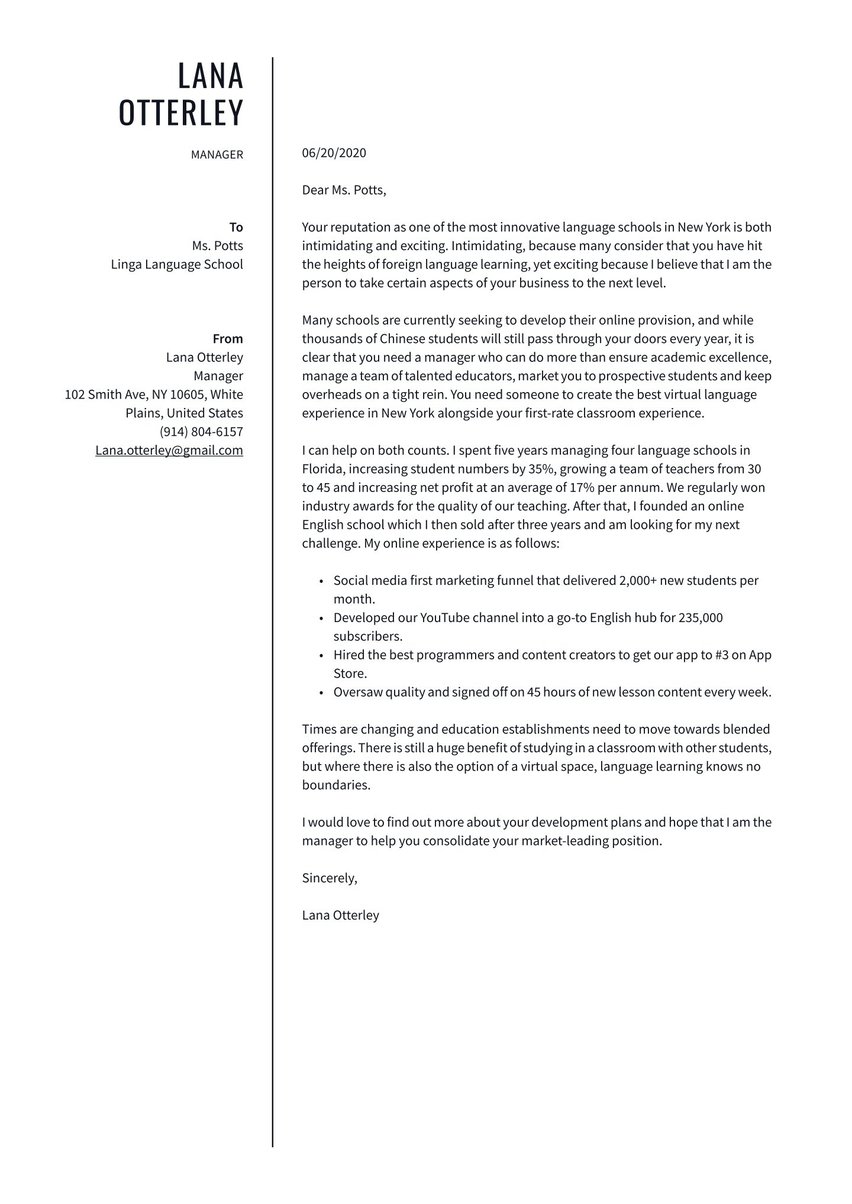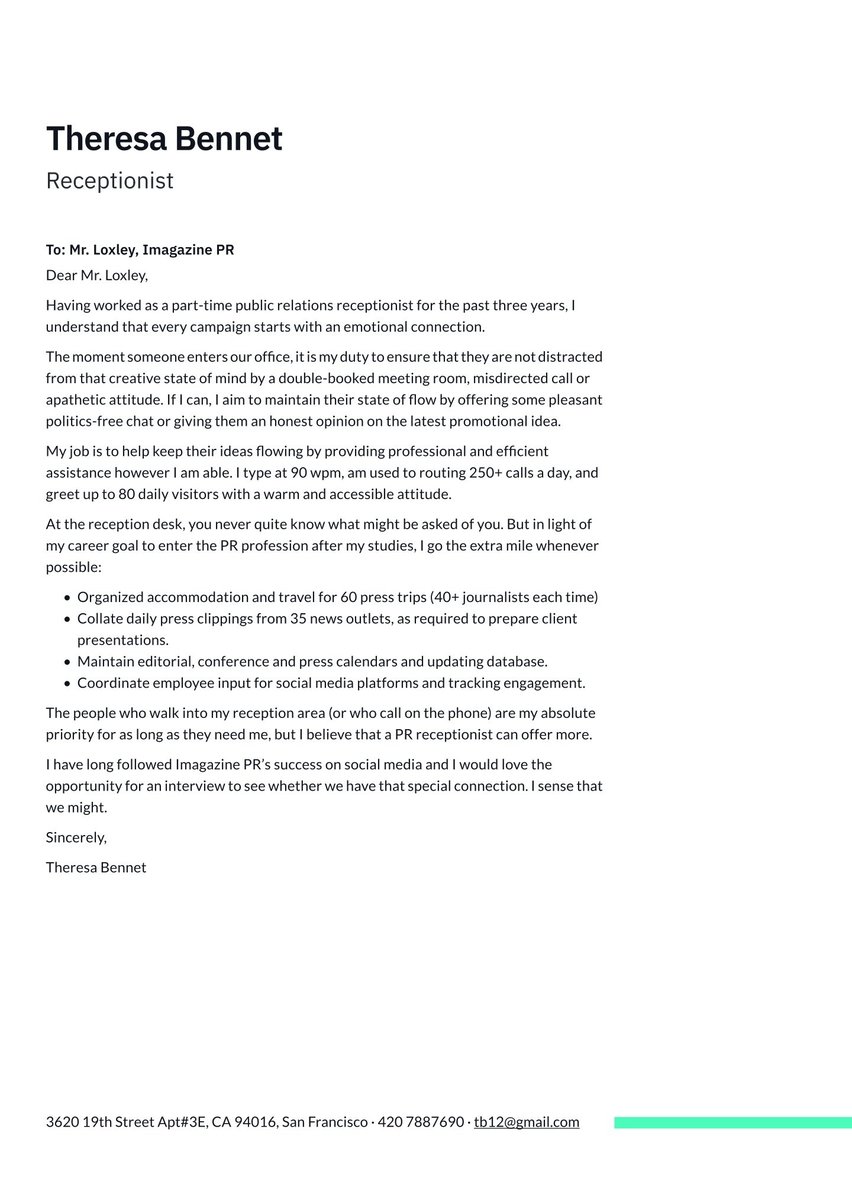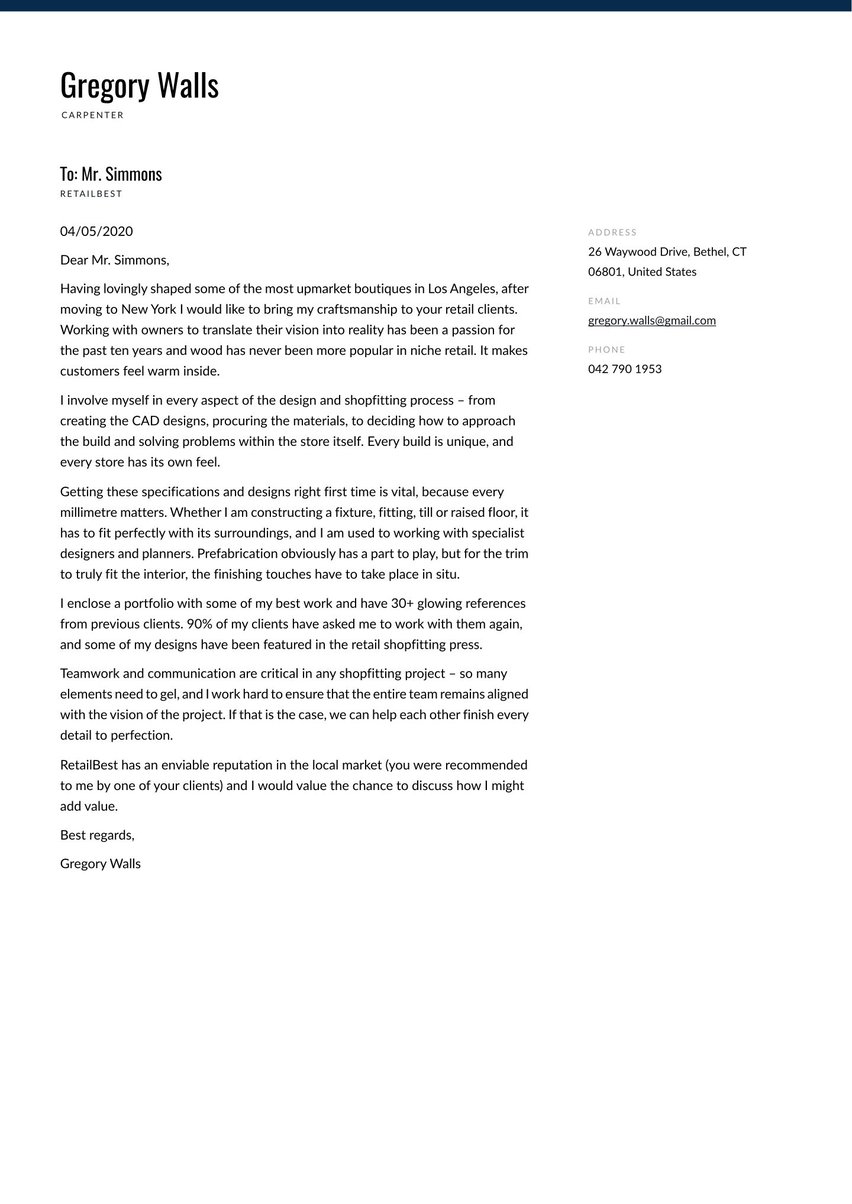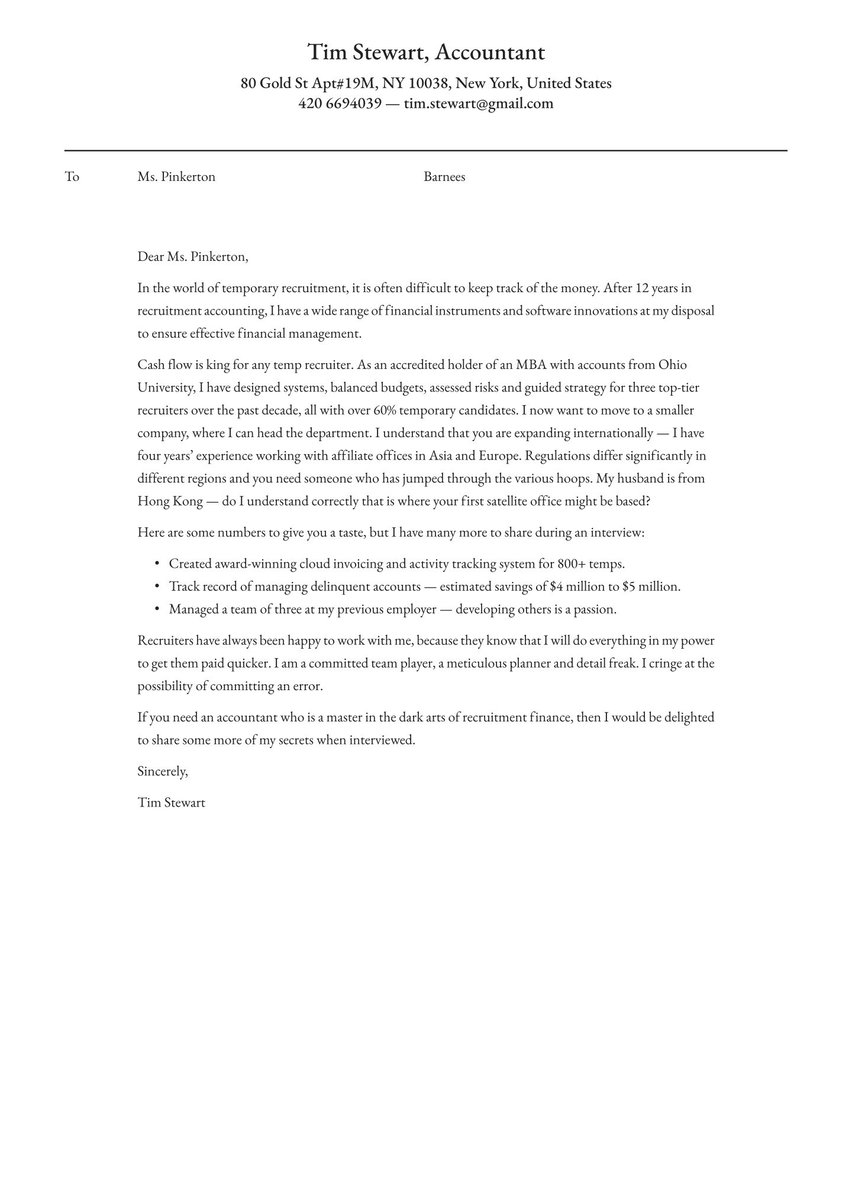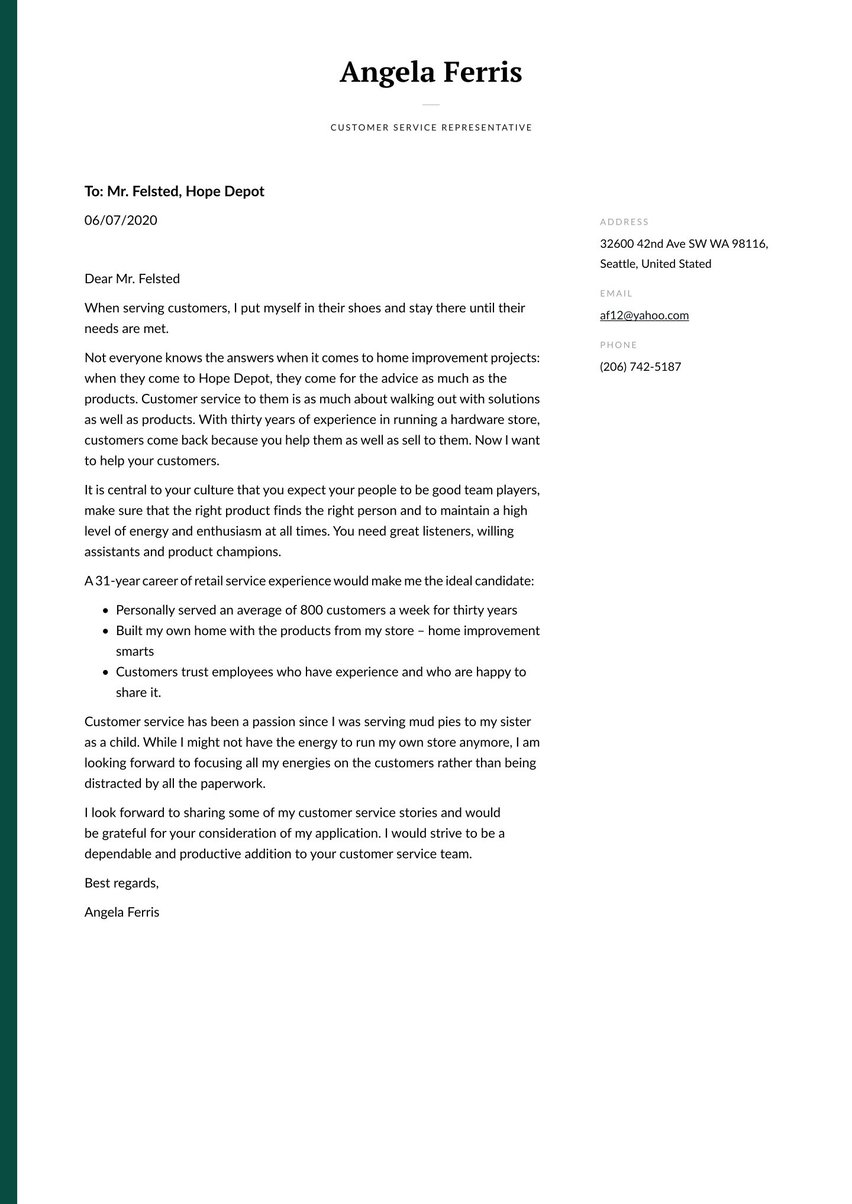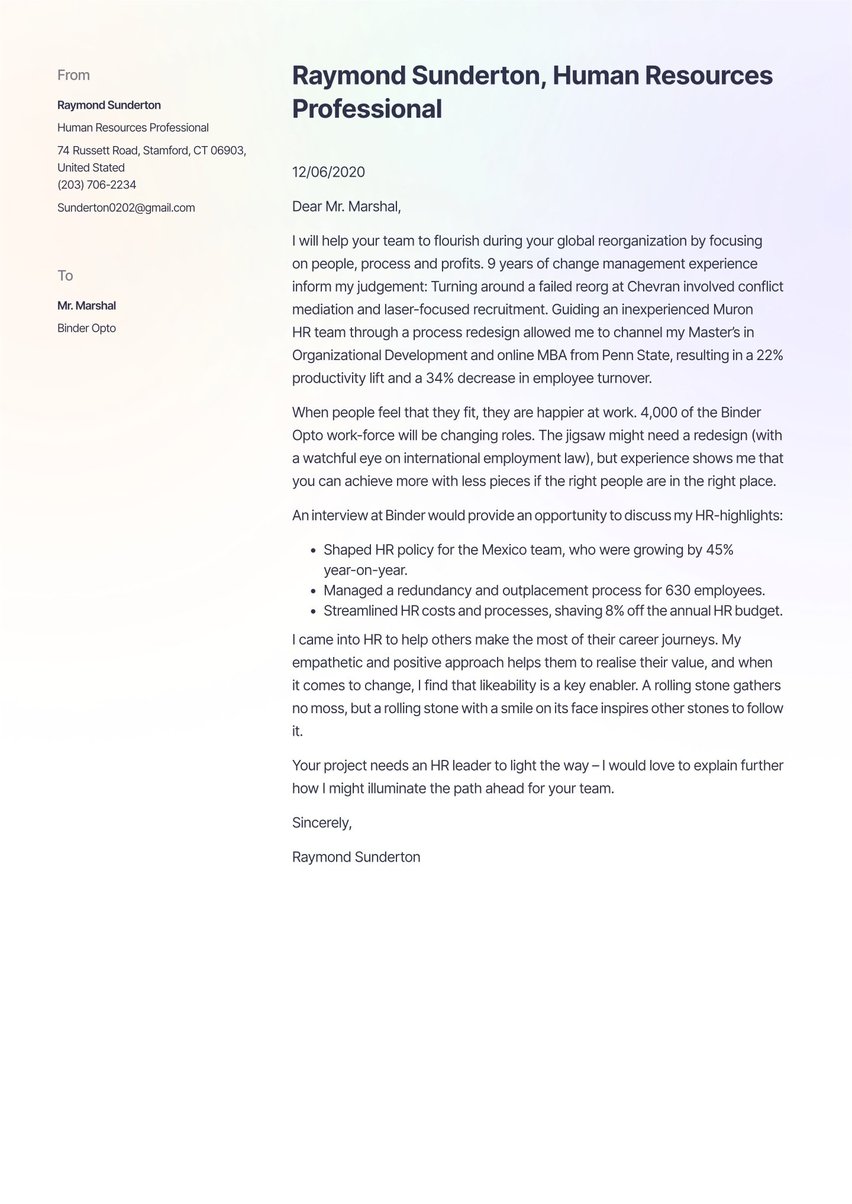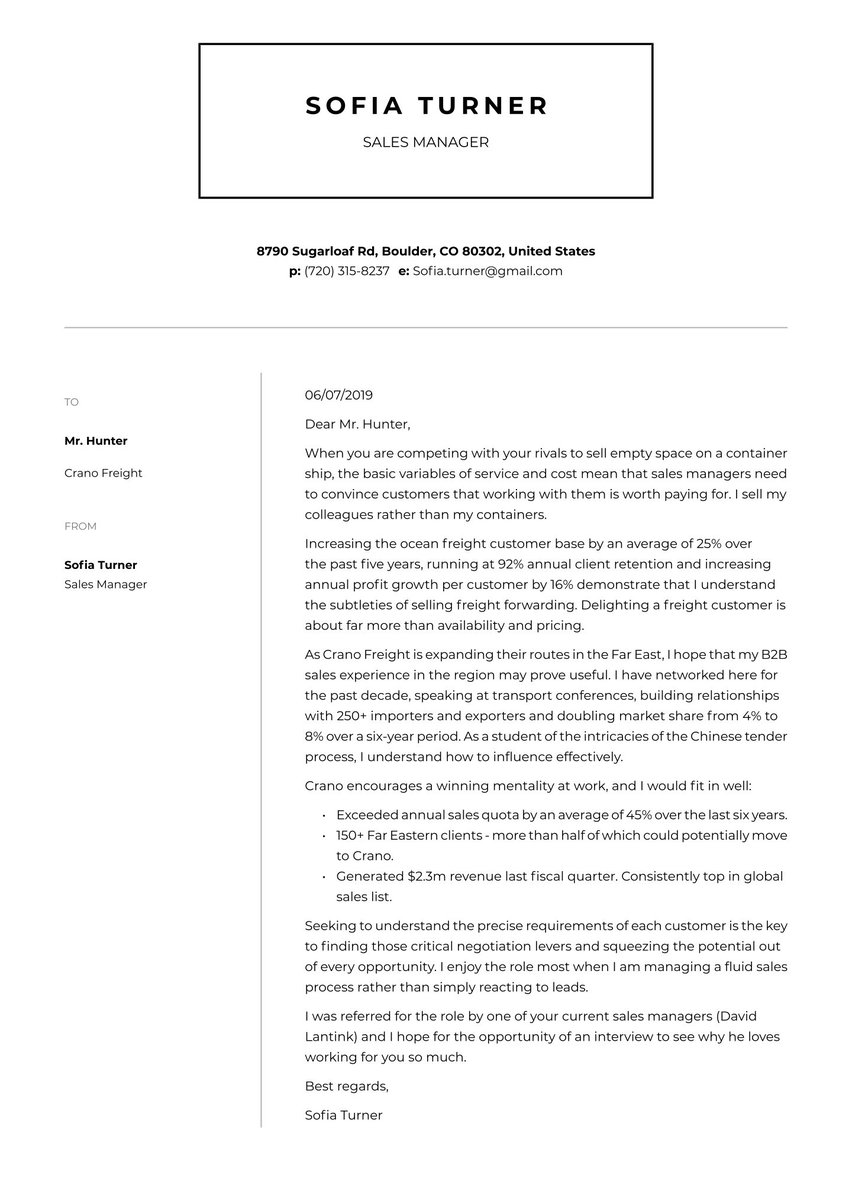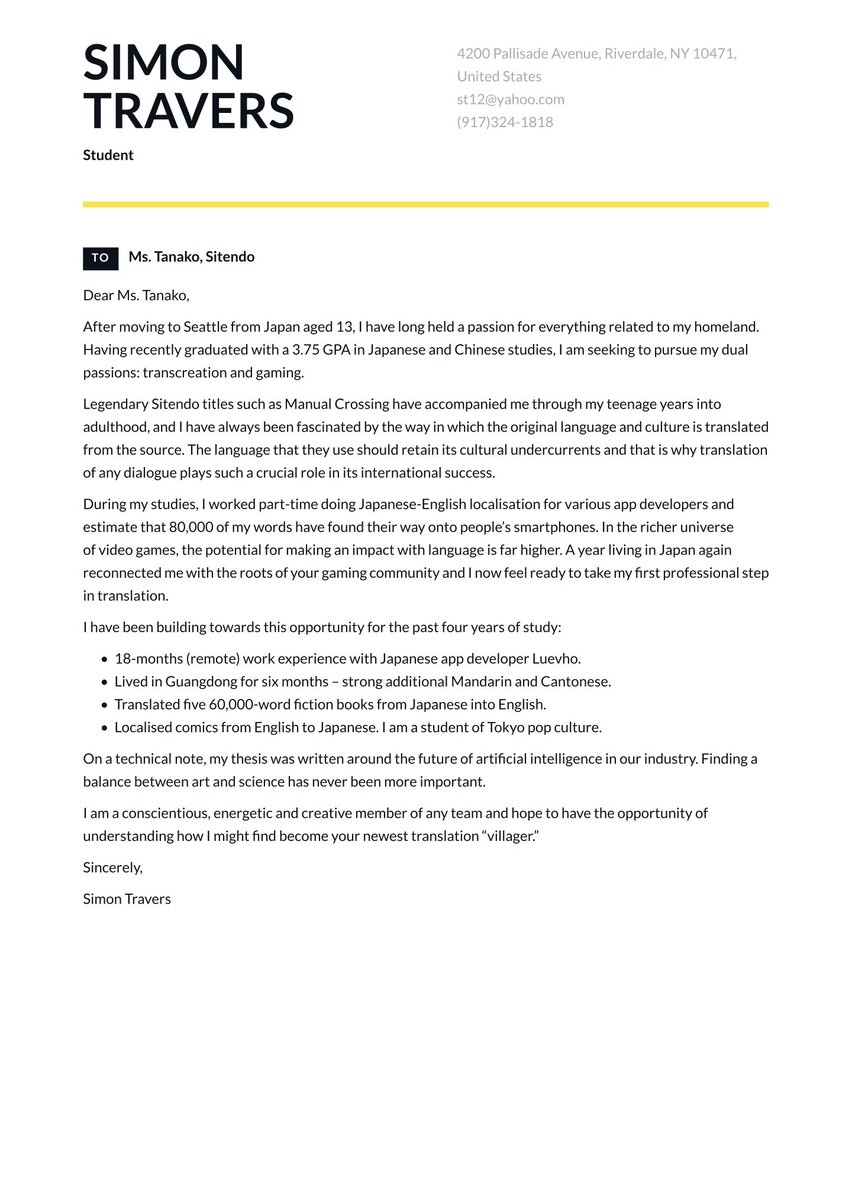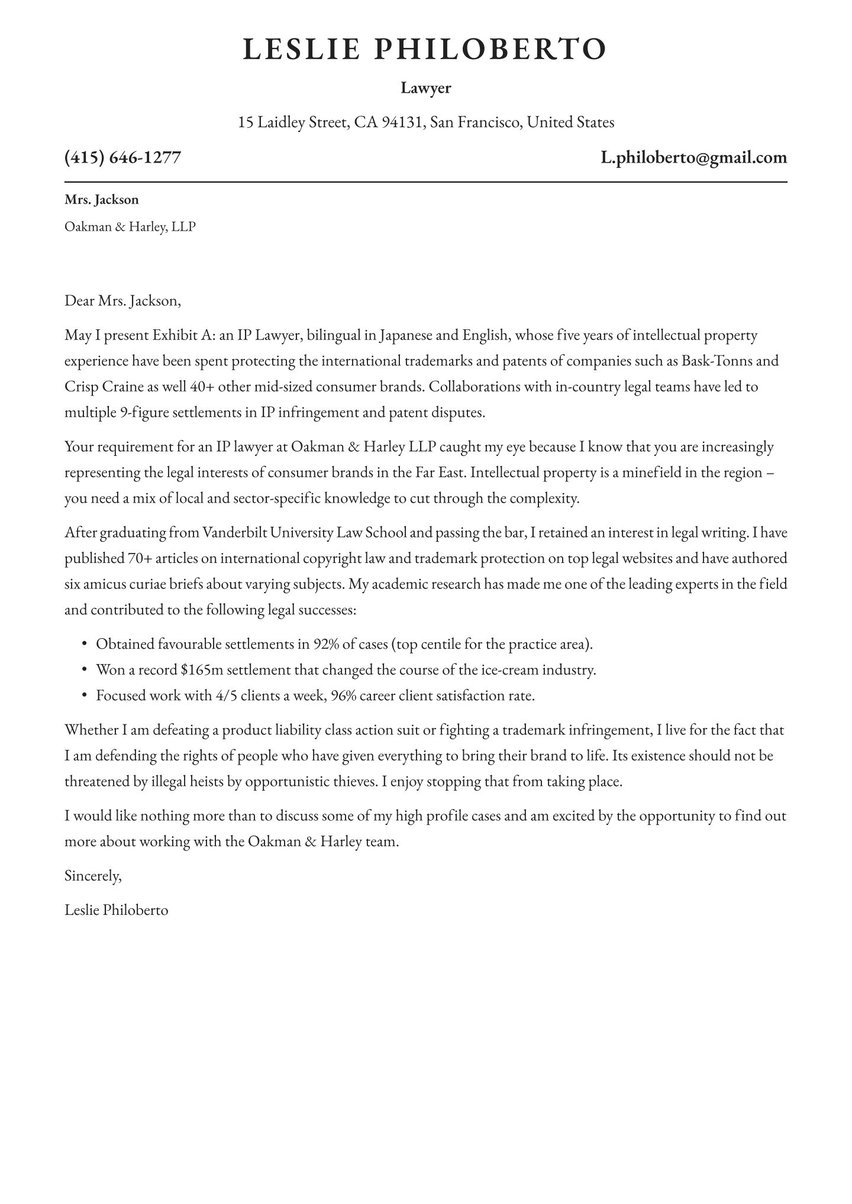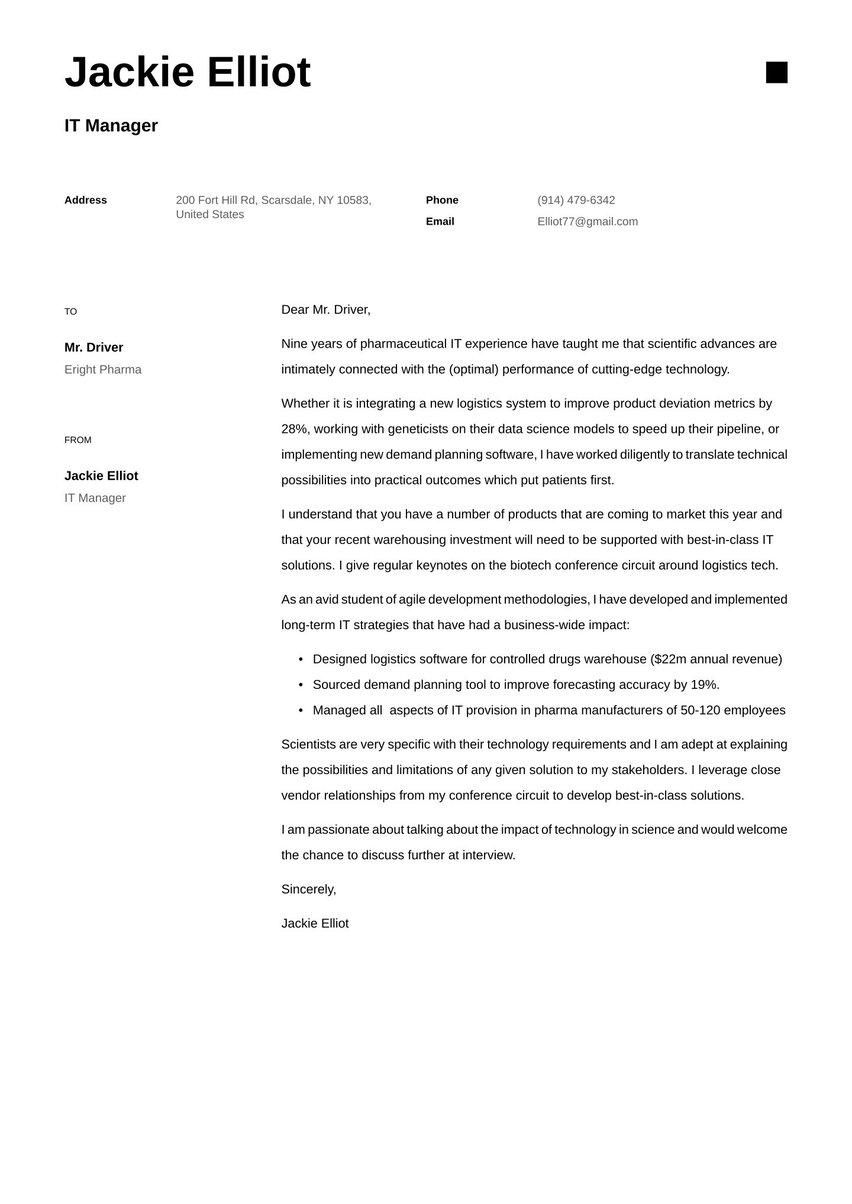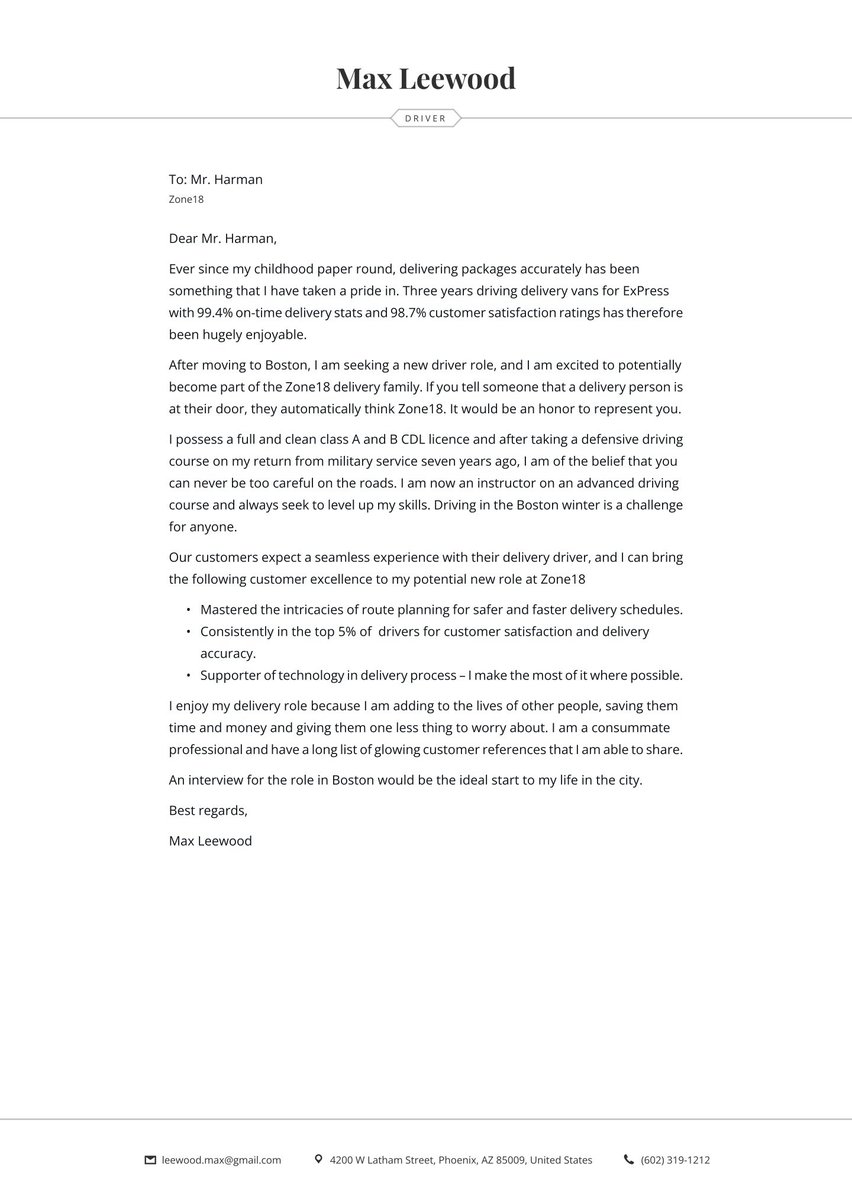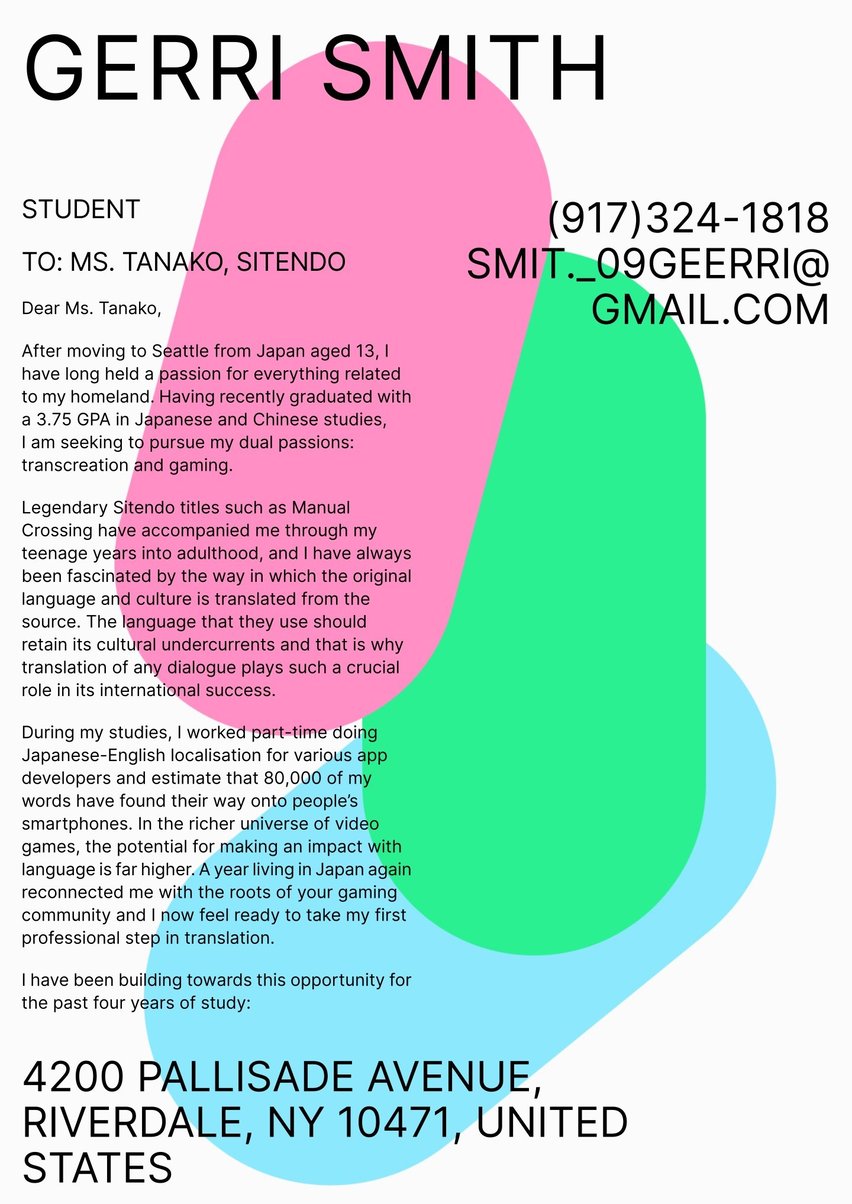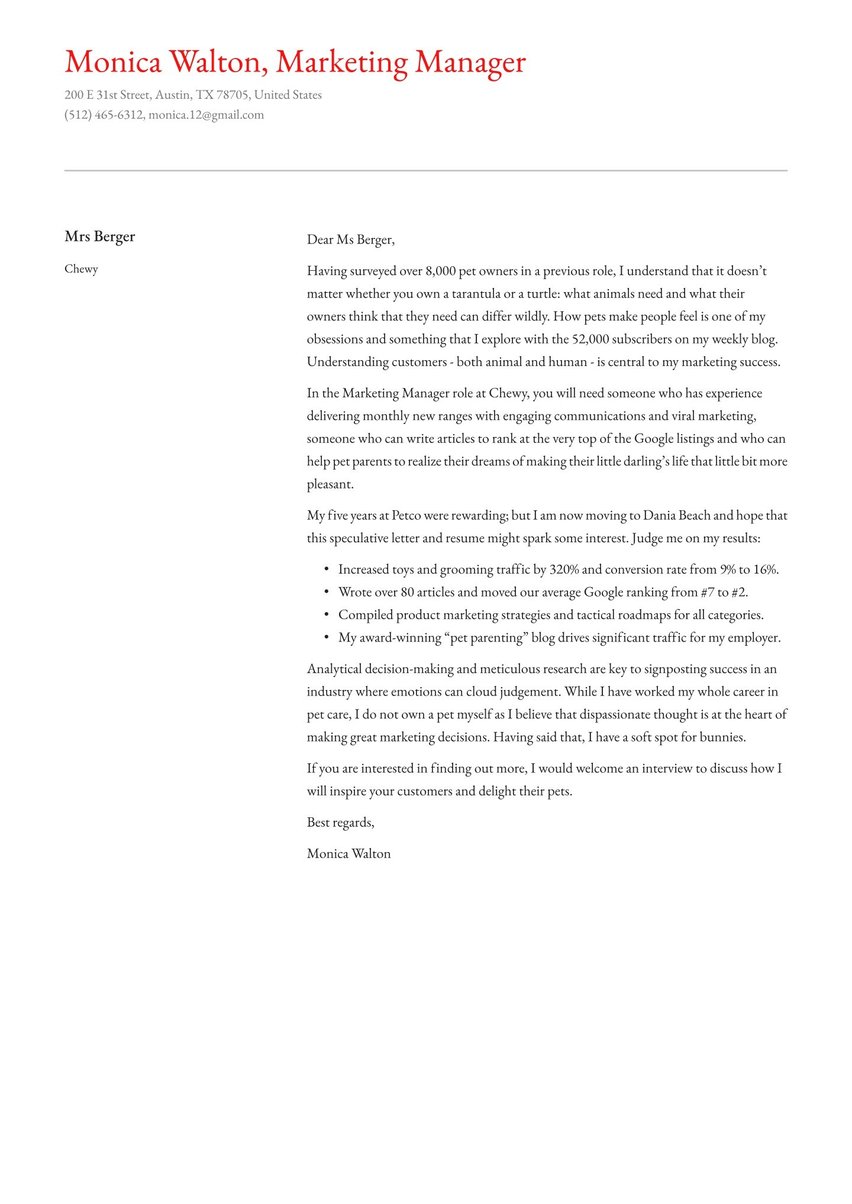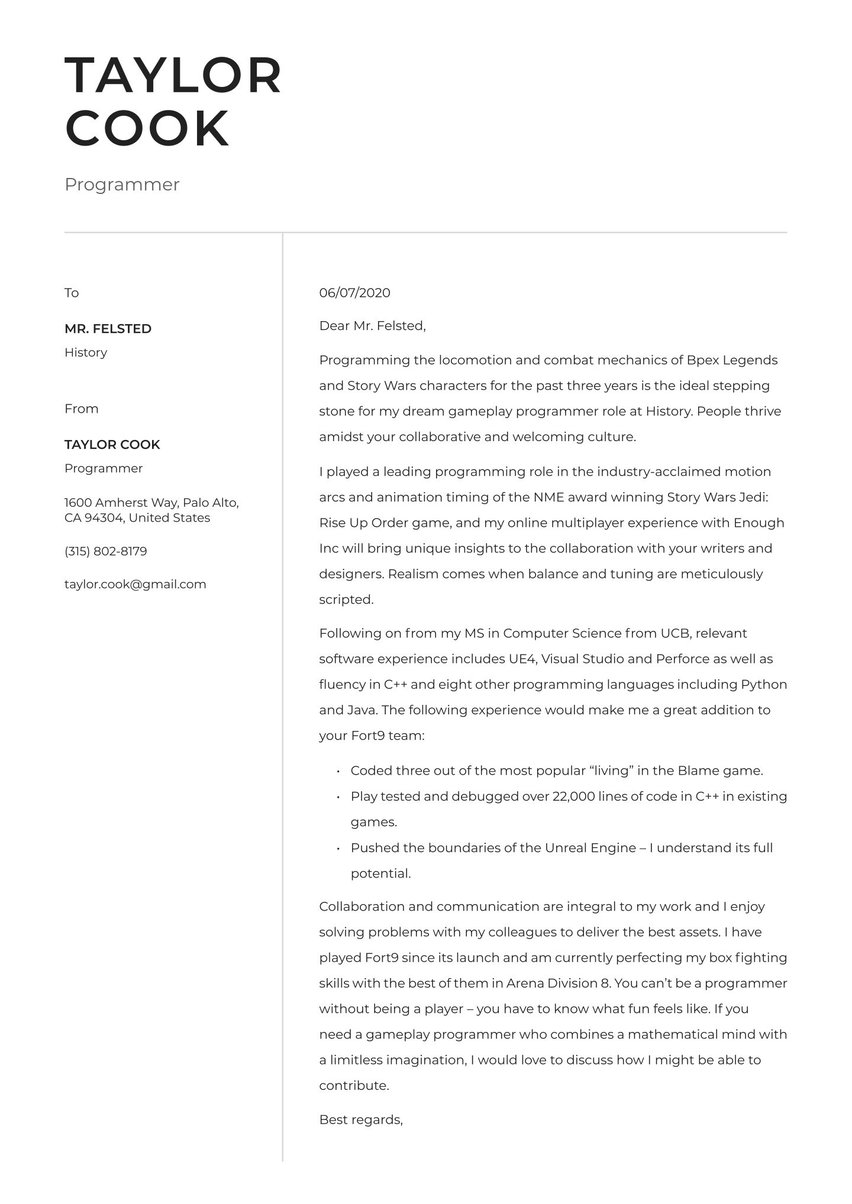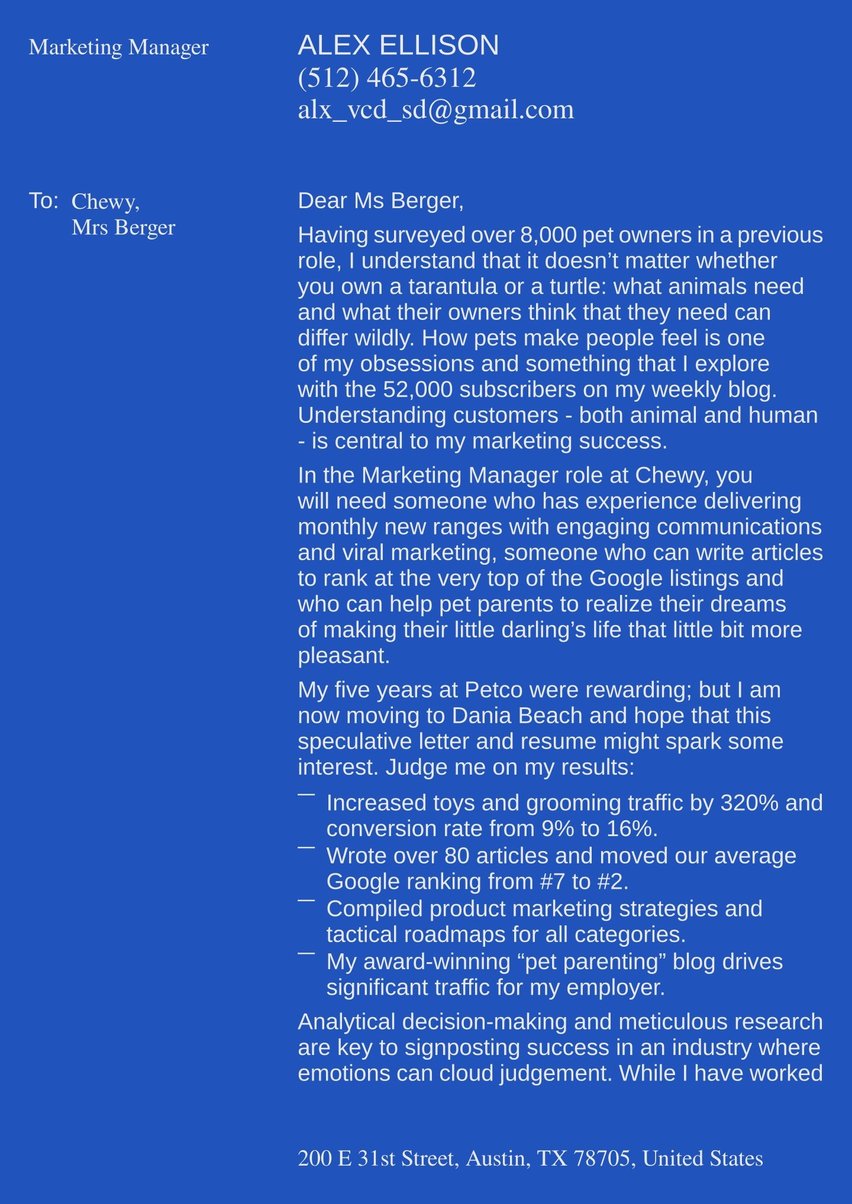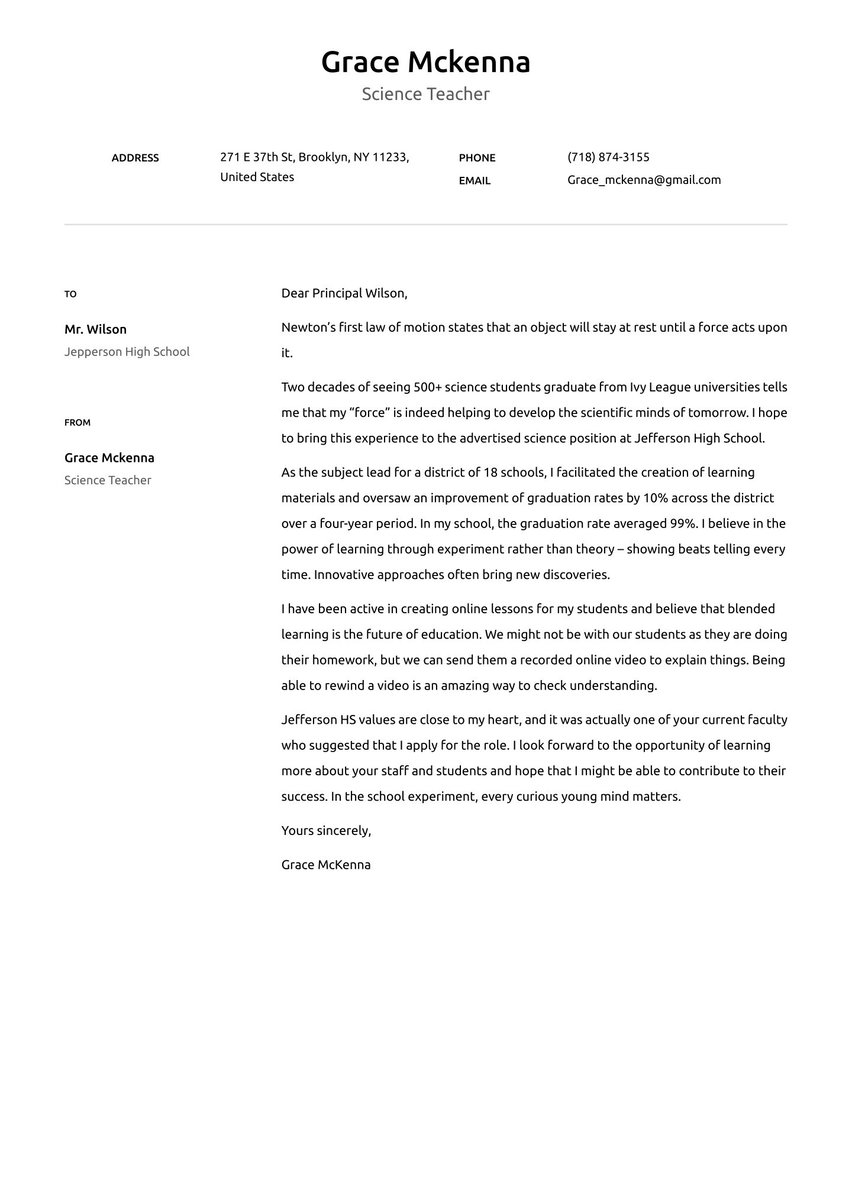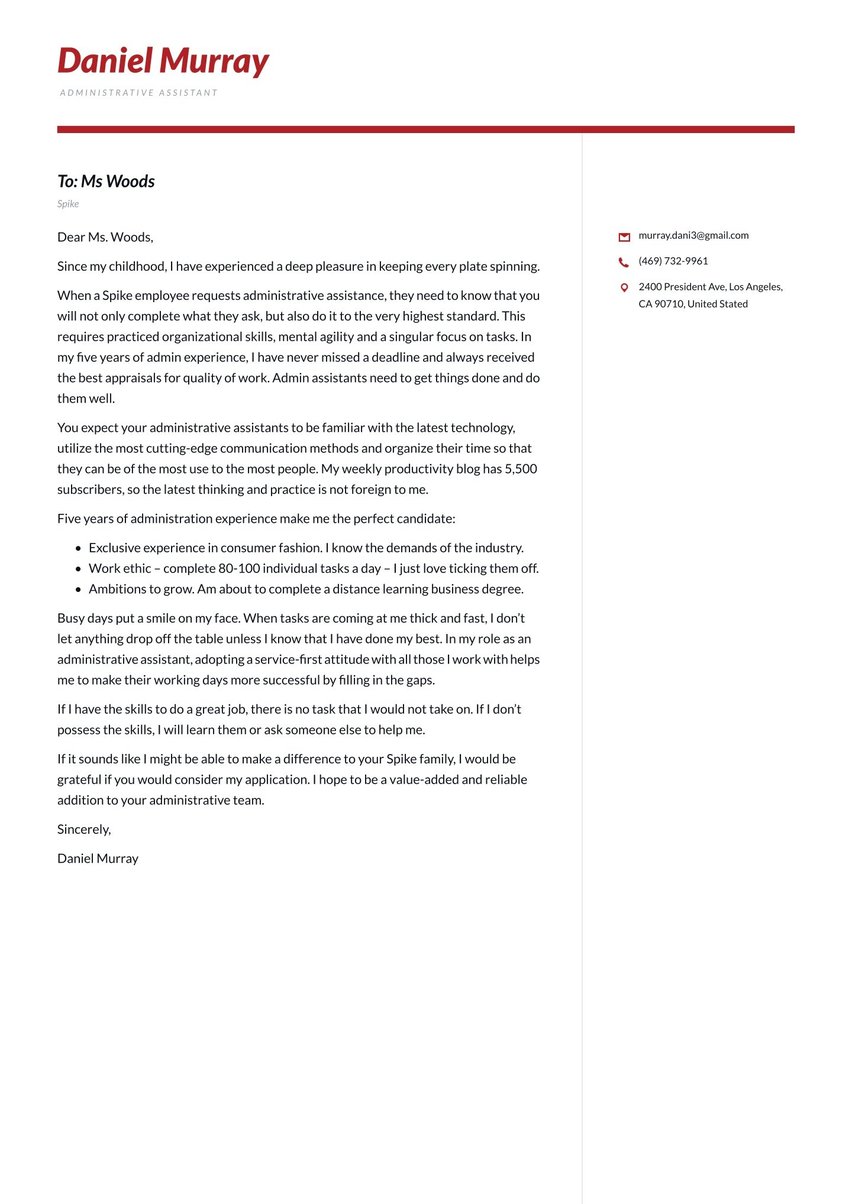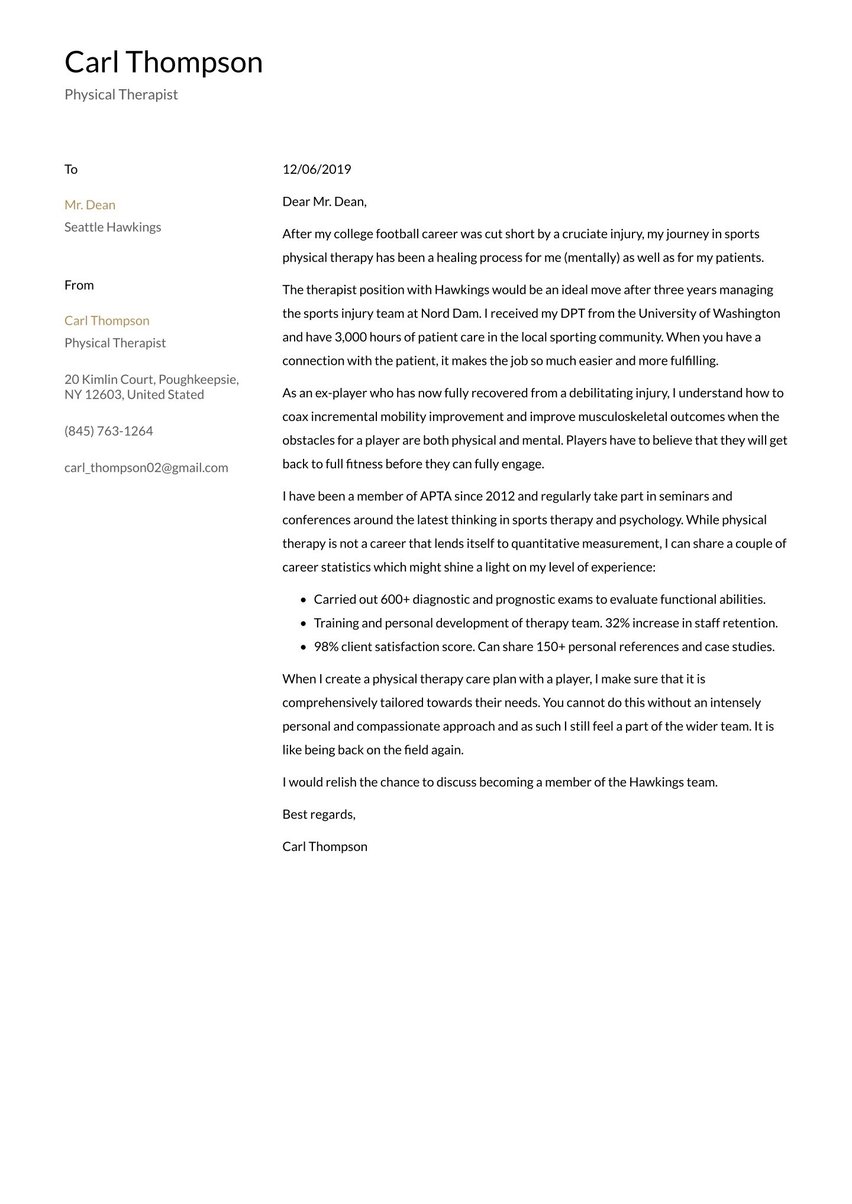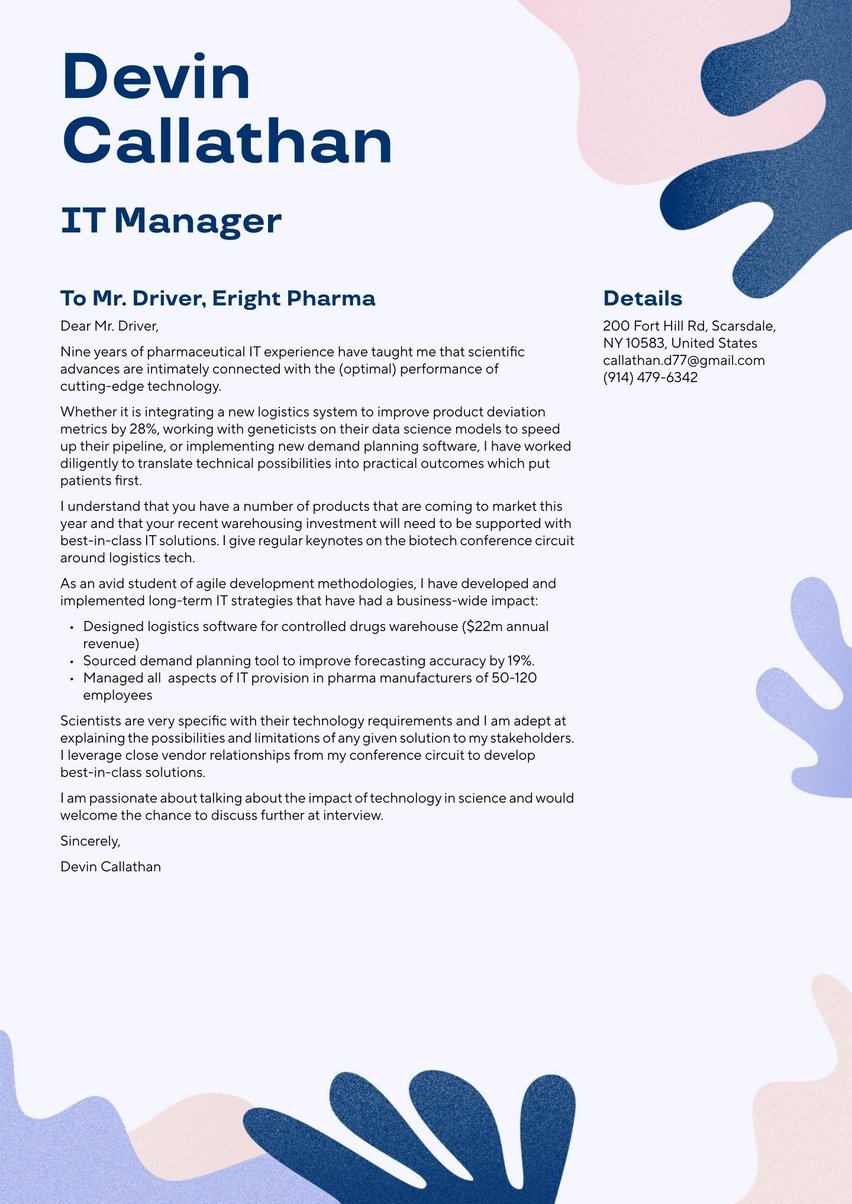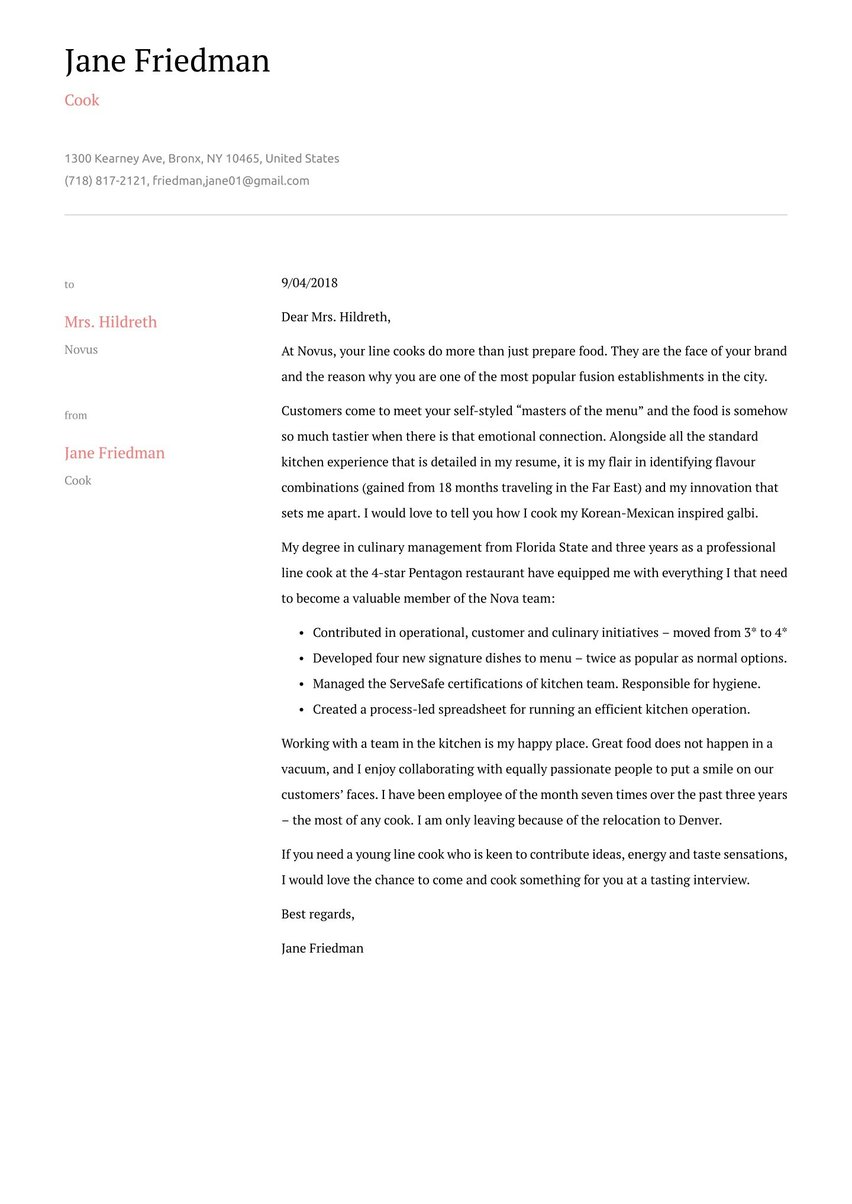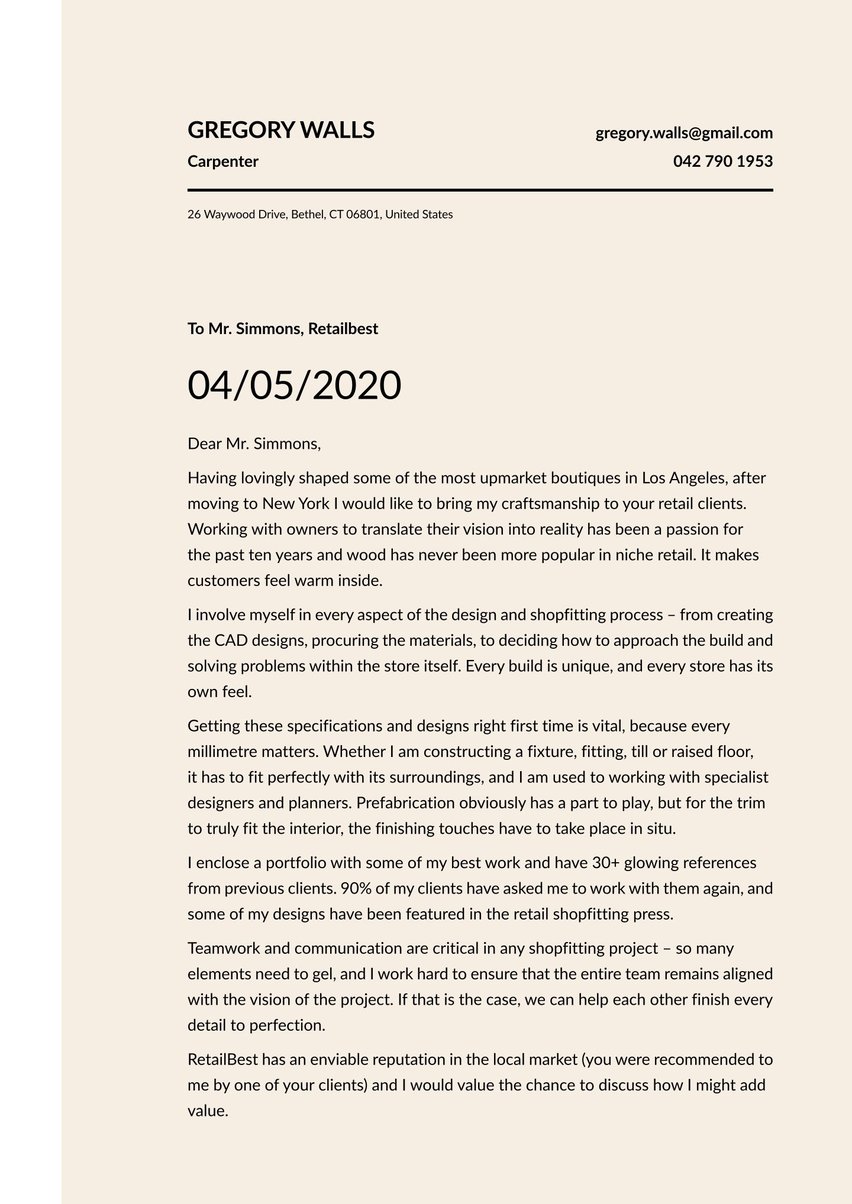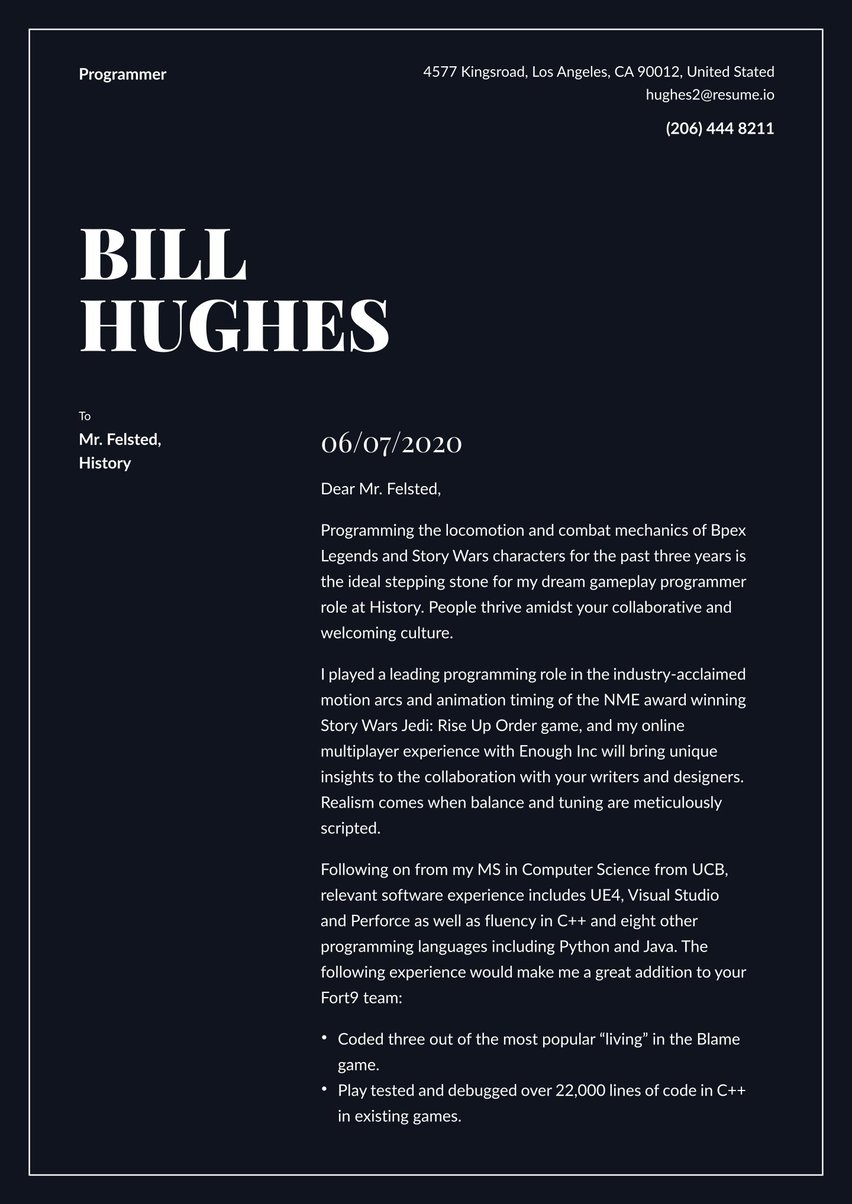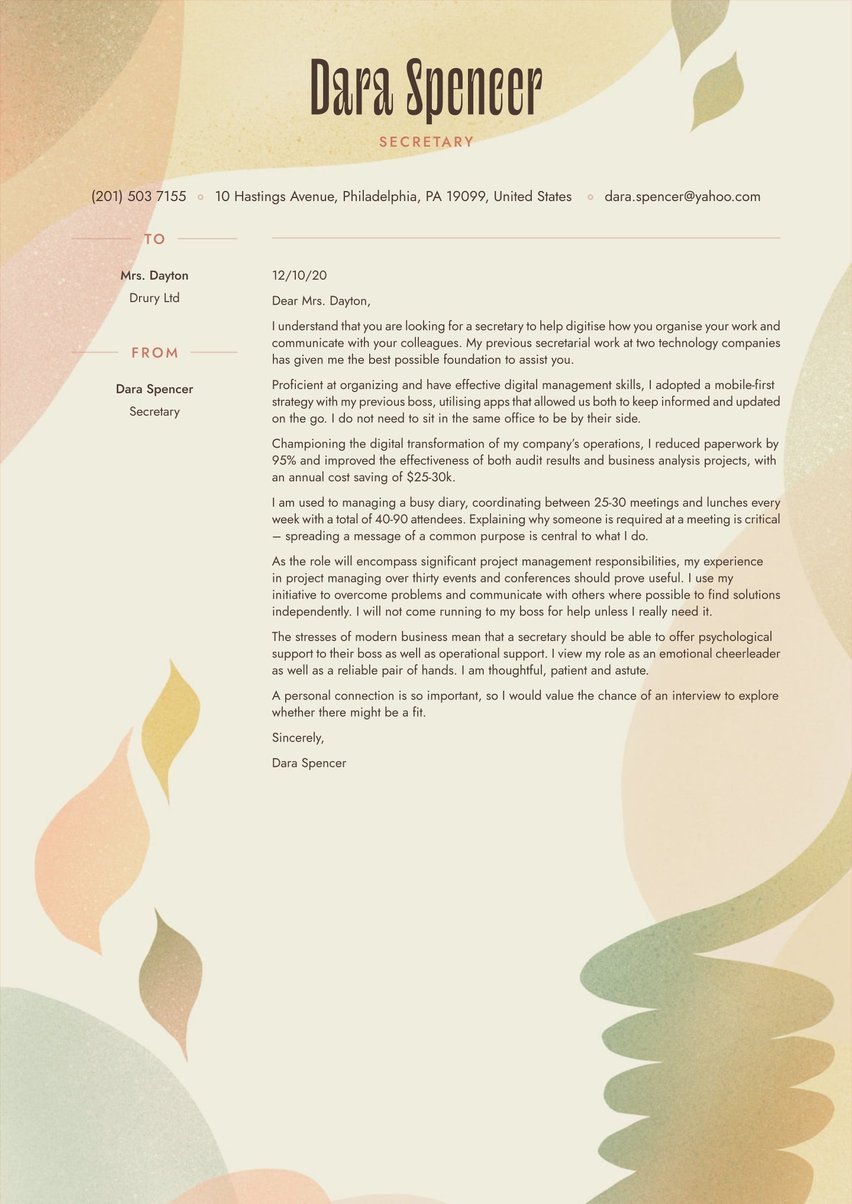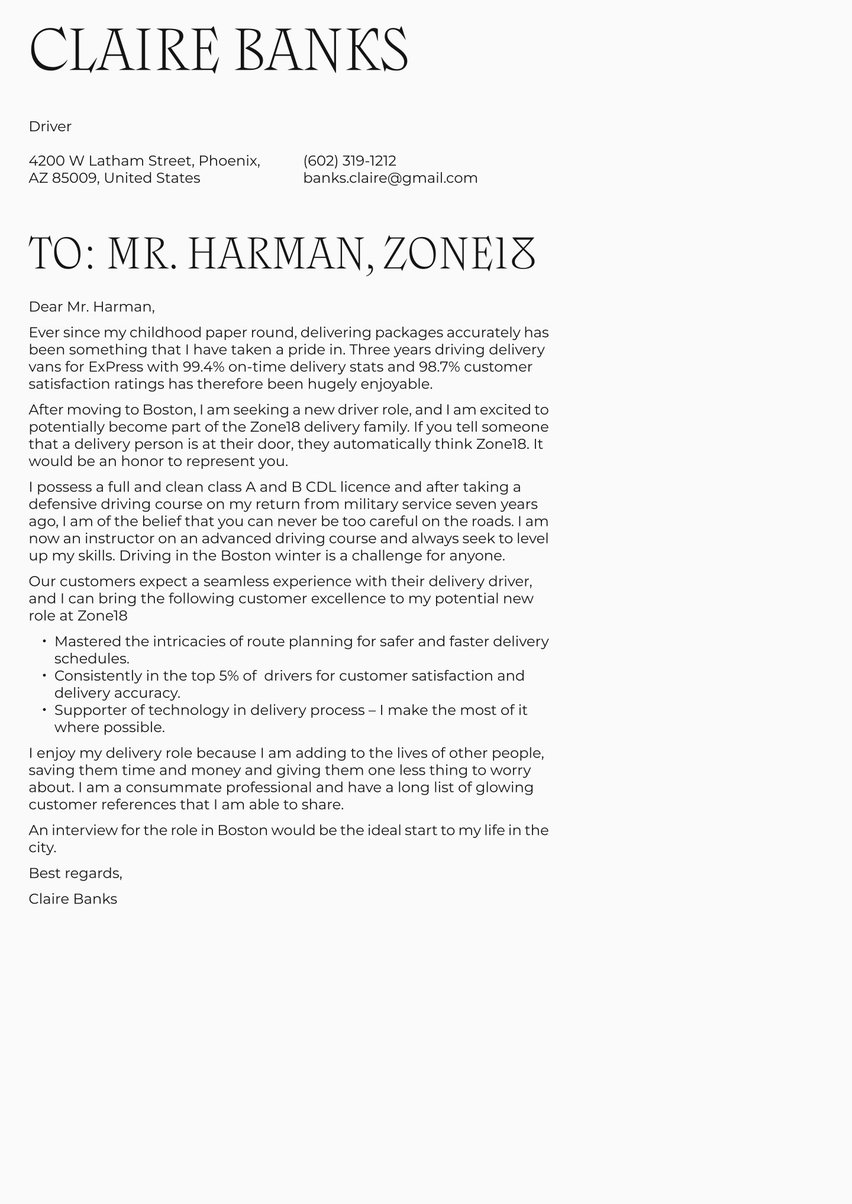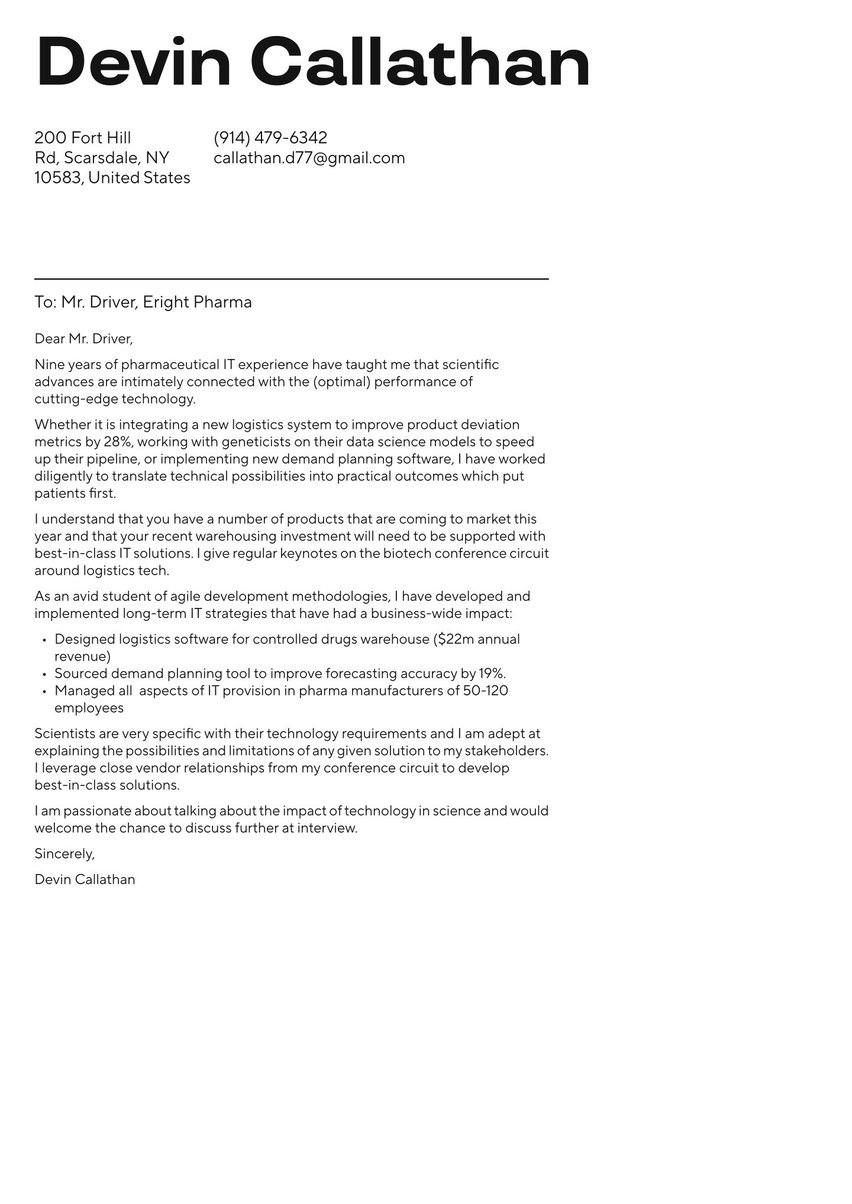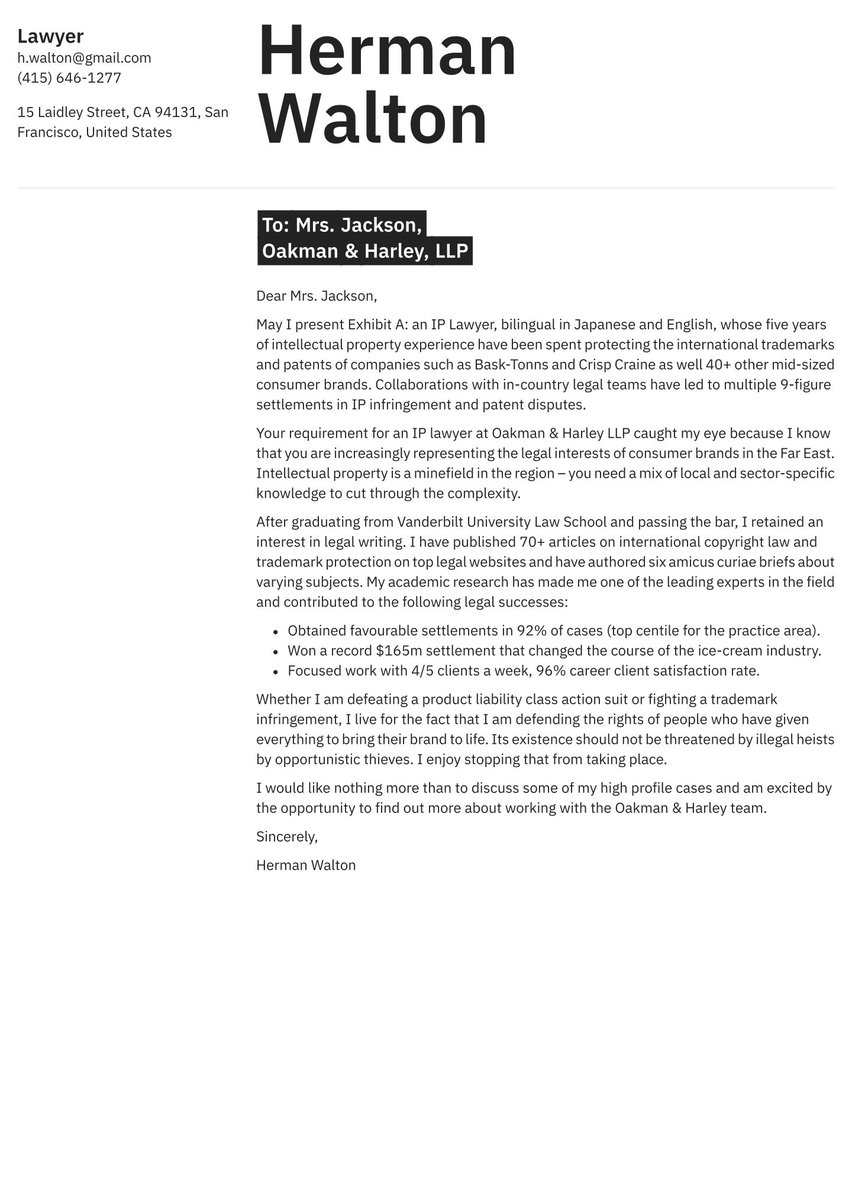Take a letter! Historically, one of a secretary’s most basic functions has been to turn a supervisor’s sometimes jumbled thoughts into a well-written, properly formatted letter.
So when seeking a secretarial job, it should be right up your alley to write an effective, persuasive and professional secretary's cover letter to accompany your resume. And as we’ll see in this guide, it will greatly increase your chances of landing the job if you do so.
Resume.io is an expert source of advice and support for every cover letter preparation step. We’ve developed a wide selection of occupation-specific writing guides and free cover letter examples, plus field-tested templates and builder tools to help you create both resumes and cover letters. Our blog information covers the gamut of job search topics, from practical document formatting tips to thank-you letter writing
Here’s what we’ll discuss in this writing guide, backed by a secretary cover letter example:
- The changing role and job outlook for secretaries
- Why a cover letter is crucial for a secretary
- Format for structuring a secretary's cover letter
- How to achieve the goal of each cover letter part: header, greeting, introduction, body and conclusion
- Design and formatting of a secretary cover letter
- Writing psychology: tips for a convincing cover letter
- Common mistakes you need to avoid.
In recent decades, the word “secretary” has fallen out of favor somewhat, replaced with terms like “administrative assistant.” But many of the duties remain the same, including handling correspondence, filing, bookkeeping, scheduling and answering phones.
The bad news is, a 7% decline in the job outlook for secretaries and administrative assistants is projected from 2020 through 2030 in the U.S., according to the Bureau of Labor Statistics.
This is due in part to advances in technology that enable executives to prepare their own documents without any help. In 1970, for example, it would have seemed strange for a CEO to type his own letters, but today it would be odd to find a CEO who doesn’t send his own emails.
Employment projections for secretaries and administrative assistants in the U.S., 2020-30, according to the BLS:
| Occupation | Employment, 2020 | Projected employment 2030 | Percent Change |
| Secretaries and administrative assistants | 3,363,900 | 3,137,700 | -7% |
| Executive secretaries and executive administrative assistants | 538,800 | 438,200 | -19% |
| Legal secretaries and administrative assistants | 160,400 | 126,700 | -21% |
| Medical secretaries and administrative assistants | 611,200 | 676,100 | +11% |
| Secretaries and administrative assistants, not counting legal, medical and executive | 2,053,50 | 1,896,700 | -8% |
What the coming job squeeze means to you is that you need an outstanding job application to compete for a shrinking number of jobs. And that means you’ll need an excellent resume and cover letter.
Take a moment to review the resume guides already prepared by resume.io for executive assistants and legal assistants. It’s helpful to have your resume done before writing your cover letter, because they’ll need a similar design, and the content of your resume can help you determine what to say in your cover letter.
Here’s what this guide will discuss:
- Why a cover letter is crucial for a secretary
- How a secretary’s cover letter should be structured
- How a secretary’s cover letter should be formatted
- Tips for writing a convincing cover letter
- Common mistakes you need to avoid.
For more ideas and inspiration, check out these cover letter writing guides and examples in the related administrative category:
- Customer Service Representative cover letter sample
- Administrative Assistant cover letter sample
- Receptionist cover letter sample
- Office Administrator cover letter sample
- Office Assistant cover letter sample
- Office Manager cover letter sample
- Personal Assistant cover letter sample
- Administrative Officer cover letter sample
- Call Center cover letter sample
- Administrative cover letter sample
- Front Desk Receptionist cover letter sample
- Virtual Assistant cover letter sample
A cover letter is an introduction, a handshake from afar, an attempt to establish a personal connection to a hiring manager. It’s also a matter of simple etiquette — you are asking for a job, so you need to ask.
A resume is a somewhat stark and impersonal listing of your job experience, qualifications and skills. A resume isn’t addressed to anyone, and it doesn’t address the specific needs of a potential employer.
But a cover letter offers the opportunity to showcase your personality, enthusiasm and likability. Nobody wants to work with someone they don’t like, so use your cover letter to demonstrate that you are an upbeat, positive professional.
Surveys of hiring managers have found that one of the top reasons resumes are rejected is because they were sent without a cover letter.
A few employers sometimes request that you send a resume only. But unless you’re specifically asked otherwise, always include a cover letter with a resume.
Best format for a secretary’s cover letter
A cover letter should almost always be a maximum of one page, or some 400 words. And it should follow a defined structure that includes the following:
Dear Mrs. Dayton,
Having worked as a personal assistant and secretary for five years, I am looking for my next challenging role. My previous secretarial work at two tech companies has given me the best possible foundation to assist you.
I am a digital native and passionate about utilising the latest AI advances to make my work more efficient. I adopted a mobile-first strategy with my previous boss, allowing us to keep informed and updated on the go. My job is to take every opportunity to make their life easier.
Leading the digital revolution within my organization, I reduced paperwork by 95% and improved the effectiveness of both audit results and business analysis projects, with an annual cost saving of $25-30k.
My time management skills are top-notch, arranging 30+ meetings and lunches every week, with up to 50 attendees per event. I am a big believer in developing personal relationships with everyone involved – you need them to be opening your emails.
I use my initiative to overcome problems and communicate with others where possible to find solutions independently. I will not come running to my boss for help unless I really need it.
The stresses of modern business mean that a secretary should be able to offer psychological support to their boss as well as operational support. I view my role as an emotional cheerleader as well as a reliable organizer. I am thoughtful, patient, and astute.
I would value the chance of an interview to explore whether there might be a fit. Your marketing manager Harris Jones suggested that I should get in touch.
Sincerely,
Dara Spencer
Here’s what each of these components should contain:
Cover letter header
In the old days, companies would order reams of fine paper that were blank except for a letterhead — a space at the top containing the company’s name, address, phone number and perhaps a color logo. A secretary would take one of these pages, roll it into a typewriter and get busy writing a letter.
Today that letterhead is known in electronic correspondence as a header, and for an individual seeking a job it should include your name, occupation, address, phone number and email.
The main purpose of a header is to let a prospective employer know how to contact you if they want to. But it has an important secondary purpose — to give your letter some visual flair.
You DON’T want to write the body of your letter in purple text, but you CAN include a light splash of color somewhere in your header. You can be a bit creative here in your use of typography, layout and white space, and it should make your letter look better overall.
Including your complete home address at the beginning of your cover letter is unnecessary and can potentially raise data protection concerns. It is advisable to share your address only when you have reached the job offer stage. Additionally, the inclusion of an inside address is outdated and takes up valuable space in your cover letter, making it less effective.
To get an idea of what good headers look like, take a spin through the free cover letter templates at resume.io. You can take these designs and make any of them your own.
Align document styles
Your resume and cover letter should be a matching set, designed to be paired, and that means you should use the same fonts, font sizes and formatting styles in both.
The headers on both should be similar if not identical, making it obvious that they came from the same person at the same time. If you’re blowing the dust off a two-year-old resume and mailing it with a new cover letter that uses totally different fonts and styles, that’s not going to work well.
Goal of the cover letter header: Distinguish yourself from other job applicants by showing a visual flair and regard for detail and high quality.
Cover letter greeting / salutation
“Dear Mr. [X],” “Dear Ms. [Y],” or “Dear Dr. [Z]” are all appropriate ways to write the greeting of your cover letter, also known as a salutation. In a proper business letter, the greeting is generally followed by a colon rather than a comma.
The era of email has relaxed these rules somewhat, so that nowadays “Greetings” or even “Hello” are sometimes substituted for “Dear.” But it’s a bit risky to mess with success, and you want to avoid being too informal in a letter asking for a job.
If you happen to know the person you’re writing to, it may be perfectly acceptable to address that individual by first name. But bear in mind that hiring decisions are often made by multiple people, so think about this entire group in writing your letter.
You should always try to address your cover letter to a named individual, even if no name is specified in the job listing that got your attention.
People like to read their own names, and it shows both attention to detail and respect if you’ve gone to the trouble of finding out who makes the hiring decisions at the company where you want to work.
A reasonable amount of research through Google, social media or the employer’s website should give you some information (if you’re an introverted person - sometimes even a call to the company itself). However, it’s vitally important to stay within the boundaries of propriety and common sense. You never know what company policies are regarding privacy.
If in doubt - use more generic but equally friendly phrases like “Dear <Company Name> Hiring Team” or “Dear <Company Name> Team”.
Goal of the cover letter greeting: Set a professional, but friendly, tone by making a direct personal connection with the employer, using the recipient’s name if possible.
Dear Mrs. Dayton,
Cover letter introduction
Your first paragraph should start the engine of your letter with a “Vroom!” Using provocative, lively language, you want to identify the job you’re seeking and suggest why you would be a great candidate to fill it.
Pay close attention to your tone of voice, which should be energetic and confident, but never arrogant or too familiar. Use bold and informative statements about yourself and the reason you’re applying for this job.
Goal of the cover letter introduction: Pique the interest of hiring managers with a confident, energetic preview of your qualifications that motivates further reading.
Having worked as a personal assistant and secretary for five years, I am looking for my next challenging role. My previous secretarial work at two tech companies has given me the best possible foundation to assist you.
Cover letter body
The central two or three paragraphs of your cover letter must make the case as to why you are an excellent candidate to fill this job.
The body of your letter should emphasize your work experience, education, special skills and any other qualifications worth mentioning.
In discussing your past experience, try to be as specific as possible, using facts and figures where appropriate. Don’t just say where you worked and when, but describe your primary achievements on the job.
Try to include at least one short little story about some challenge you faced in a past job, what action you took and how you achieved a satisfactory resolution.
Also, if you’ve done your homework on the employer you’re targeting, it can be really helpful to discuss specific challenges that you know this employer faces, and to suggest how your contributions could help address these issues.
Aim of the cover letter body: Highlight your most relevant achievements in relatable terms that translate to potential benefits for this employer.
I am a digital native and passionate about utilising the latest AI advances to make my work more efficient. I adopted a mobile-first strategy with my previous boss, allowing us to keep informed and updated on the go. My job is to take every opportunity to make their life easier.
Leading the digital revolution within my organization, I reduced paperwork by 95% and improved the effectiveness of both audit results and business analysis projects, with an annual cost saving of $25-30k.
My time management skills are top-notch, arranging 30+ meetings and lunches every week, with up to 50 attendees per event. I am a big believer in developing personal relationships with everyone involved – you need them to be opening your emails.
I use my initiative to overcome problems and communicate with others where possible to find solutions independently. I will not come running to my boss for help unless I really need it.
The stresses of modern business mean that a secretary should be able to offer psychological support to their boss as well as operational support. I view my role as an emotional cheerleader as well as a reliable organizer. I am thoughtful, patient, and astute.
Cover letter conclusion and call to action
Close on a positive, enthusiastic note that contains some kind of “call to action.” Declare that you would be delighted to come in for an interview, or perhaps even ask if you could call within the next couple of weeks to follow up.
Plant the thought in your correspondent’s head that s/he should take some action as a result of your letter and not just lay it aside. Let that person know that you are not just randomly sending out resumes, but that you’re really interested in this job in particular and you’re confident you would be an excellent candidate.
Goal of the cover letter conclusion: End on a positive, self-assured note with a call to action that ideally results in an interview.
Cover letter sign-off
Finish with “Sincerely,” “All my best,” or a similar phrase, insert a space below that, and type your name. If you like, you can insert a digital signature here, though in electronic correspondence this is not considered necessary.
I would value the chance of an interview to explore whether there might be a fit. Your marketing manager Harris Jones suggested that I should get in touch.
Sincerely,
Dara Spencer
The best start to a great cover letter is a professionally designed template where all the formatting is done for you. Review sample cover letter templates in four style categories: simple, modern, professional and creative. Choose the one you like best, and fill in your own information using our cover letter builder tool.
You’ll be building on a foundation of success with a format that’s been proven to work by actual recruiters!
Writing psychology: how to write a persuasive cover letter
A cover letter is formal business correspondence, but that doesn’t mean it shouldn’t be personal. Always remember that you’re writing to a real person, and your letter should sound like it was written by a real person too — not a robot.
Your letter is a personal appeal in which you’re asking another human being for a job. So you want to try to get inside that person’s head a bit.
If you were on the receiving end of this letter, would you want to meet the person who wrote it? Would you want to work with that person for years to come?
Are there any turnoffs in your letter? Does it ever cross a line from confident competence into arrogance? Does it ever sound like you feel entitled to this job?
It’s crucial to find the right tone of voice, taking into account your position relative to that of the person to whom you’re writing.
You also want to look at the kind of language used by the firm you’re targeting on its website and elsewhere. Whether it’s highly formal or disarmingly casual, the tone the employer uses in its communications with the public should serve as a guide to the kind of tone you should use in your letter.
You need to make sure that you’ve mentioned all of your most impressive accomplishments, and left out anything that isn’t a great selling point. You can only say so much in a one-page letter, and you need to make every word count.
Mistakes to avoid in writing a cover letter
Here are some of the common errors to avoid in writing a cover letter:
- Typos, misspellings and other English mistakes: You cannot afford to make any mistakes. Nobody wants to hire a secretary who can’t write a one-page letter without typos, misspellings, bad grammar or punctuation mistakes.
- One size fits all: Every cover letter should be unique and targeted to a specific employer. You can’t just send the same letter to 50 prospective employers and expect all of them to take you seriously.
- Clichés, HR-speak and fluff: Are you a “team-oriented” “self-starter” who “thinks outside the box”? Well, then 1985 just called, and it wants its clichés back. Lazy, hackneyed phrases borrowed from elsewhere will demonstrate that you lack originality and are just recycling a bunch of “fluff” — fancy language that doesn’t mean anything.
- Structural and formatting errors: If you’ve ignored the basic components of what a cover letter should contain and how it should be formatted, how are you going to convince anyone that you’d be a good secretary?
Key takeaways for a secretary cover letter
- Secretary jobs are expected to decline by 7% in the next decade, at least in the United States, so to stay ahead of the pack in a competitive field, you need a superior cover letter and resume.
- Sending a cover letter is not only a common courtesy when seeking a job, but it’s a demonstration of your ability to do the job well.
- A cover letter that looks terrible because it ignores basic formatting standards could be an instant disqualifier — before the hiring manager reads the first word.
- Put yourself in the shoes of the person you’re writing to, and write a letter that would make that person want to hire you.
- Avoid common mistakes in writing and formatting —in fact, avoid any mistake whatsoever.


